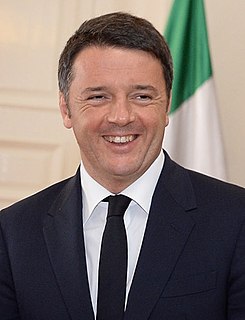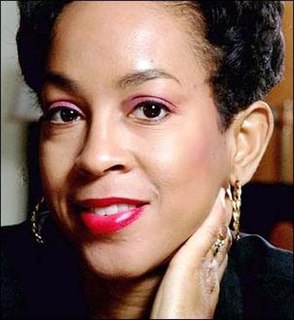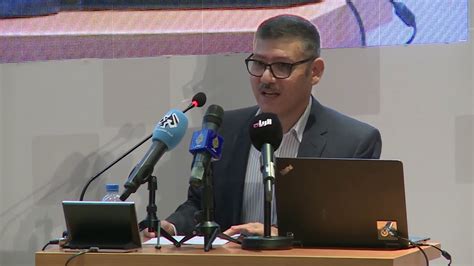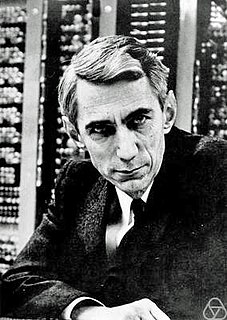Top 454 Discussed Quotes & Sayings - Page 8
Explore popular Discussed quotes.
Last updated on November 21, 2024.
When the tribal groups of december trade
Seated in the figure of crocodile
And songs are sung and deals discussed, are made
Real. All... For more than one reason they smile.
These codes are writ in secret, feeling fine
To keep what's private to my self since we
All must face our maker in our own ryhme
And reasons for being ( from regrets) free
So let the memory of your glory
Be the tenderness heartfelt love starkly
In the sky of my mind vast and pretty
Evermore glittering simplicity
Where in the truth of country grows sober
And sunshines through fog to radiate wonder
In my formative years the people who influenced me most were the Christian existentialists, I mean men like Munier and Kierkegaard and perhaps most of all Nicholas Berdyaev and in my travels I looked for one thing more than anything. I rarely discussed, probably mainly because of language difficulties, metaphysics with the various religious people of other groups I'd meet with. But I'd very much try to see how they were incarnated, how their particular soul was incarnated or took roots into reality.
Italy will start the future. Because in the last 20, 20 years, Italy discussed only about the past. "Oh, the past is wonderful in Italy." Look, look Palazzo Vecchio. The most beautiful place in the world, in my opinion, I think this is incredible place. But the past is not sufficient. Is not enough. We need the future. Because we are Italians. And Italy is not only a museum.
Dear Diary, Today I tried not to think about Mr. Knightly. I tried not to think about him when I discussed the menu with Cook... I tried not to think about him in the garden where I thrice plucked the petals off a daisy to ascertain his feelings for Harriet. I don't think we should keep daisies in the garden, they really are a drab little flower. And I tried not to think about him when I went to bed, but something had to be done.
Differences in political opinions are as unavoidable as, to a certain point, they may perhaps be necessary; but it is exceedingly to be regretted that subjects cannot be discussed with temper on the one hand, or decisions submitted to without having the motives, which led to them, improperly implicated on the other; and this regret borders on chagrin when we find that men of abilities, zealous patriots, having the same general objects in view, and the same upright intentions to prosecute them, will not exercise more charity in deciding on the opinions and actions of one another.
As you can imagine, over the years I have been asked many times to discuss and explain my song "American Pie." I have never discussed the lyrics, but have admitted to the Holly reference in the opening stanzas. You will find many interpretations of my lyrics but none of them by me. You will find many “interpretations” of my lyrics but none of them by me. Isn’t this fun? Sorry to leave you all on your own like this but long ago I realized that songwriters should make their statements and move on, maintaining a dignified silence.
That was what stuck in the craws of all the good women of Deptford: Mrs Dempster had not been raped, as a decent woman would have been-no, she had yielded because a man wanted her. The subject was not one that could be freely discussed even among intimates, but it was understood without saying that if women began to yield for such reasons as that, marriage and society would not last long. Any man who spoke up for Mrs Dempster probably believed in Free Love. Certainly he associated sex with pleasure, and that put him in a class with filthy thinkers like Cece Athelstan.
I think in certain ways sex work has been romanticized. I can only speak from my experience, but what surprised me about escorting was how boring it mostly is. it seemed like an assembly line process of cleaning my apartment, dressing up, making awkward small talk, having mundane mechanical sex, making more awkward small talk, and then closing the door after them. There's also a lot of frustration and annoyance with it that I feel isn't discussed (a lot of flaky potential clients for instance.)
In fact, I always assumed that most everything I read was true, to one degree or another. I couldn't articulate this fact until after I read Tim O'Brien's The Things They Carried and he discussed Happening Truth, Story Truth, and Emotional Truth. I always understood that the facts of The Sun Also Rises or On the Road were the facts as dictated by a certain narrative structure, but because the experiences of those characters echoed my own feelings about the world. I knew there was a Happening Truth behind them.
Since November 8, 2017 the United States is literally alone in the world in first of all refusing to join in efforts to do something about climate change, but even worse, dedicated to making the situation worse. Every part of the world is trying to do something. The United States alone is trying to destroy it, and it's not just Trump, it's the whole Republican Party. You just can't find words for it. And it's not reported. It's not discussed.
I am, I must confess, suspicious of those who denounce others for having too much sex. At what point does a healthy amount become too much? There are, of course, those who suffer because their desire for sex has become compulsive; in their case the drive (loneliness, guilt) is at fault, not the activity as such. When morality is discussed I invariably discover, halfway into the conversation, that what is meant are not the great ethical questions but the rather dreary business of sexual habit, which to my mind is an aesthetic rather than an ethical issue.
The gravest error a thinking person can make is to believe that one particular version of history is absolute fact. History is recorded by a series of observers, none of whom is impartial. The facts are distorted by sheer passage of time and thousands of years of humanity's dark ages, deliberate misrepresentations by religious sects, and the inevitable corruption that comes from an accumulation of careless mistakes. The wise person, then, views history as a set of lessons to be learned, choices and ramifications to be considered and discussed, and mistakes that should never again be made.
Hillary Clinton and I have worked together on a higher education proposal which will guarantee free tuition in public colleges and universities for every family in this country making $125,000 a year or less. We're going to fight for paid family and medical leave. Those are the issues that the American people want to hear discussed, and I'm going to go around the country discussing them and making sure that Hillary Clinton is elected president.
It was with the last revolution and the coming of INGSOC (Inglish/English Socialism) that the latest High learnt how to keep their position permanently - by cultivating ignorance among the other classes and by constantly surveying them through the Thought Police. Part of this strategy included the maintenance of a state of continual warfare, which Goldstein discussed in the third chapter. The three major powers were not fighting this perpetual war for victory; they were fighting to keep a state of emergency always present as the surest guarantee of authoritarianism.
A lot of my books deal with very controversial issues that most people often don't want to talk about, issues that, in my country, are more likely to get put under the carpet than get discussed. And when you talk about moral conundrums, about shades of gray, what you're doing is asking the people who want the world to be black and white to realize instead that maybe it's all right if it isn't. I know you'll learn something picking up my books, but my goal as a writer is not to teach you but to make you ask more questions.
The soul contains few secrets and longings which cannot be sensibly discussed, analyzed, and polled. Solitude, the very condition which sustained the individual against and beyond his society, has become technically impossible. Logical and linguistic analysis demonstrate that the old metaphysical problems are illusory problems; the quest for the "meaning" of things can be reformulated as the quest for the meaning of words, and the established universe of discourse and behavior can provide perfectly adequate criteria for the answer.
At a meeting in her office in the late summer of 2002, months before the war in Iraq, prisoner abuse at Guantanamo is discussed. Condoleezza Rice brings in Donald Rumsfeld for a meeting, and they all agree they have to do something. Nothing gets done. Did everybody understand we were going to be as tough as we could be people we thought were Al Qaeda? Is there a better way to get information, get their trust, establish rapport, try to change their views? Nobody wants to think about that. It's just, let's beat them up. And that attitude was widespread throughout the Administration.
Our teaching of mathematics revolves around a fundamental conflict. Rightly or wrongly, students are required to master a series of mathematical concepts and techniques, and anything that might divert them from doing so is deemed unnecessary. Putting mathematics into its cultural context, explaining what is has done for humanity, telling the story of its historical development, or pointing out the wealth of unsolved problems or even the existence of topics that do not make it into school textbooks leaves less time to prepare for the exam. So most of these things aren't discussed.
Once my loved one accepted the diagnosis, healing began for the entire family, but it took too long. It took years. Can't we, as a nation, begin to speed up that process? We need a national campaign to destigmatize mental illness, especially one targeted toward African Americans. The message must go on billboards and in radio and TV public service announcements. It must be preached from pulpits and discussed in community forums. It's not shameful to have a mental illness. Get treatment. Recovery is possible.
The concept of the "information society" is both vague and all-embracing. Different participants meant different things by it. In practice, though, World Summit on the Information Society only dealt with a small number of issues: ICTs and human rights (to some extent), ICTs and development (to some extent), infrastructure finance and Internet governance. Very large aspects of what might have been included in the "information society" were not really discussed.
I took a dozen of our top managers to Argentina, to the windswept mountains of the real Patagonia, for a walkabout. In the course of roaming around those wild lands, we asked ourselves why we were in business and what kind of business we wanted Patagonia to be. A billion-dollar company? Okay, but not if it meant we had to make products we couldn't be proud of. And we discussed what we could do to help stem the environmental harm we caused as a company. We talked about the values we had in common, and the shared culture that had brought everyone to Patagonia, Inc., and not another company.
The Arab spring reminds me a bit of the decolonisation process where one country gets independence and everybody else wants it. How about us, when do we get it, when do we make our move? And you have a situation where someone has been in power for decades, where the integrity of elections, democracy and security have really not been debated or discussed and most people suspect that elections are rigged and that the democratic rotation that elections are supposed to ensure doesn't really happen. And when this goes on for a while you are sitting on a powder keg.
Distinguish open-minded people from closed-minded people. Open-minded people seek to learn by asking questions; they realize that what they know is little in relation to what there is to know and recognize that they might be wrong. Closed-minded people always tell you what they know, even if they know hardly anything about the subject being discussed. They are typically made uncomfortable by being around those who know a lot more about a subject, unlike open-minded people who are thrilled by such company.
Ayatollah Khamenei actually is not the most powerful person in Iran. He does not make nuclear policy. He does not make security policy. He is one voice among many and not even the most important voice by any means.When nuclear strategy is being discussed in Iran, he is not the dominant figure to make things happen. So I think this sense which he has created to a considerable degree by his own self-promotion has made him the center of attention when, in fact, the real center of activity is some place else.
This is the process of Self realization about which Eastern mystics have written. It is the process of salvation to which much Western theology has devoted itself. This is a day-to-day, hour-to-hour, moment-to-moment act of supreme consciousness. It is a choosing and a re-choosing every instant. It is ongoing creation. Conscious creation. Creation with a purpose. It is using the tools of creation we have discussed, and using them with awareness and sublime intention.
People are interested in authentic long-term, socialist goals, which is not what is usually called socialism. They should be thinking through carefully how the projected society should work, but not in extensive detail because a lot of things just have to be learned by experiment and we don't know enough to plan societies in detail by any means. But, general guidelines could be worked out and many of the specific problems can be discussed. That should just be part of people's popular consciousness. That's how a transition to socialism could take place.
A … difference between most system-building in the social sciences and systems of thought and classification of the natural sciences is to be seen in their evolution. In the natural sciences both theories and descriptive systems grow by adaptation to the increasing knowledge and experience of the scientists. In the social sciences, systems often issue fully formed from the mind of one man. Then they may be much discussed if they attract attention, but progressive adaptive modification as a result of the concerted efforts of great numbers of men is rare.
I feel less and less like that every year, and I guess maybe even more so with every new record that I put out. I just think, as the years go by, it's harder and harder to really find a reason to be annoyed that you made something that people want to continuously talk about. Certainly there are contexts in which the record can be discussed which will get me on the defensive and make me want to put some kind of calibration or some kind of context on what the record means in relation to my career as a whole.
I have done much more dramatic work than comedic work, but I think comedy is harder than drama in a way. I think it's one of those things that's constantly discussed - people who do comedy think it's harder, people who do drama think it's harder. Usually drama is the one that gets this highbrow respect.
The United States is a special case, and for me, very interesting. It's studied carefully and we know a lot about it. One of the most striking features of the elections is the class-based character of the vote. Now, class is not discussed or even measured in the United States. In fact, the word is almost obscene, except for the term "middle class." And you can't get exact class data; the census doesn't even give class data. But you can sort of see the significance of it just from income figures.
Perhaps in the back of our minds we already understand, without all the science I've discussed, that something terribly wrong is happening. Our sustenance now comes from misery. We know that if someone offers to show us a film on how our meat is produced, it will be a horror film. We perhaps know more than we care to admit, keeping it down in the dark places of our memory-- disavowed. When we eat factory-farmed meat we live, literally, on tortured flesh. Increasingly, that tortured flesh is becoming our own.
My greatest concern was what to call it. I thought of calling it 'information,' but the word was overly used, so I decided to call it 'uncertainty.' When I discussed it with John von Neumann, he had a better idea. Von Neumann told me, 'You should call it entropy, for two reasons. In the first place your uncertainty function has been used in statistical mechanics under that name, so it already has a name. In the second place, and more important, no one really knows what entropy really is, so in a debate you will always have the advantage.'
There was a small boy on crutches. I do not know his name, and I suspect I never will. But I will never forget his face, his smile, his sorrow. He is one of the millions robbed of hope and dignity by charlatans discussed in this book. Wherever and whoever he is, I apologize to him for not having been able to protect him from such an experience. I humbly dedicate this book to him and to the many others who have suffered because the rest of us began caring too late.
The most widely discussed formulation of [the One World model] was the "end of history" thesis advanced by Francis Fukuyama. "We may be witnessing," Fukuyama argued, "the end of history as such: that is, the end point of mankind's ideological evolution and the universalization of Western liberal democracy as the final form of human government." The future will be devoted not to great exhilarating struggles over ideas but rather to resolving mundane economic and technical problems. And, he concluded rather sadly, it will all be rather boring.































